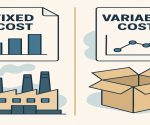Goods create income in an economy. To track this, economists use national income measurement. Students often ask, “what methods are used to measure the income of goods?” The answer lies in three key methods: production, income, and expenditure. Each helps understand how much income a country creates through goods and services. These methods form a base for economic studies, government planning, and policy-making. Understanding how income flows through an economy is essential for students and professionals. National income tells how rich or poor a country is. It also helps to compare one country with another. In this article, readers will learn in simple words about the meaning of national income and the three key methods used to measure it.
What is National Income?
National income means the total income earned by people and businesses in a country in one year. It shows how much money the government makes from selling goods and services. Economists use national income to find how strong or weak an economy is.
Understanding National Income
National income includes farming, factories, services, trade, and more. It also includes money earned by citizens living outside the country. When someone sends money home from a foreign job, that income adds to the national income. The idea of national income is essential for any country. It shows how much a country produces. It helps the government plan new schools, hospitals, and roads. It helps leaders know how to help people experiencing poverty. Policymakers use national income to set taxes, loans, and spending.
There are many types of national income figures:
- Gross Domestic Product (GDP) means the total value of goods and services produced inside the country.
- Net Domestic Product (NDP): It is GDP minus the wear and tear of machines.
- Gross National Product (GNP): GDP plus income from abroad.
- Net National Product (NNP) is GNP minus wear and tear.
- National Income (NI): People earn total income after taxes and depreciation are removed.
Each of these helps to measure the economy. All types of income tell something new. But they all begin with measuring goods and services. That is why learning what methods are used to measure the income of goods is significant. The income from goods moves across farmers, traders, workers, and shopkeepers. This flow is tracked under national income. People who study economics must understand these parts well.
Measurement of National Income
The government and economists use three methods to measure national income. These are: Production method, Income method, and Expenditure method. All these help to know what methods are used to measure the income of goods.
Production Method
The production method adds up the value of goods and services produced. It shows how much money all the businesses and factories made. In this method, we find the output of different sectors. These sectors include farming, factories, services, and trade.
This method is also called the Value Added Method. It works in steps. First, all the goods produced are taken. Then, the cost of raw materials used is removed. What remains is called “value added.”
Formula of Production Method
This method works well when the country keeps records of all goods and services. But sometimes, small shops and farmers do not keep records. So, it becomes hard to measure.
National Income = Gross Value of Output – Intermediate Consumption
Example:
If a factory makes cloth worth ₹10 lakh and uses raw cotton worth ₹6 lakh, then the value added is ₹4 lakh. The income from cloth is ₹4 lakh, not ₹10 lakh.
Sectors included in Production Method
This method tells how much output comes from each part of the economy. Policymakers use this to boost sectors that earn more money.
| Sector | Goods or Services Covered |
| Primary | Farming, fishing, and mining |
| Secondary | Factories, construction, energy |
| Tertiary | Transport, trade, finance, services |
Income Method
The income method adds the income earned by all people in the country. It includes salaries, profits, rents, and interest. This method helps in understanding who earns how much. Under this method, income is collected from households, businesses, and the government. The government collects data from income tax records and company profits.
Formula of Income Method:
National Income = Rent + Wages + Interest + Profit + Mixed Income
Mixed income means income earned by small businesses or self-employed individuals. In India, many people are self-employed. So, mixed income is a large part of it.
Components of Income Method
The income method is best when income records are strong. Countries like the USA use this more often. In India, it is used with other methods. This method gives a good idea of how wealth is spread. If wages are low and profits are high, the rich earn more. This method becomes hard if the income records are not correct. Some people hide their income to avoid tax. That affects this method.
| Income Type | Meaning |
| Wages | Salary paid to workers |
| Rent | Money earned from land or property |
| Interest | Money earned from lending |
| Profit | Earnings of businesses |
| Mixed Income | Income of farmers, shopkeepers |
Expenditure Method
The expenditure method adds all the money spent on goods and services. It checks how people, businesses, and the government spend money. This method shows how much is spent on food, clothes, machines, roads, and services.
Formula of Expenditure Method
National Income = C + I + G + (X – M)
Where:
- C = Consumption by households
- I = Investment by businesses.
- G = Government spending
- X = Exports
- M = Imports
Components of Expenditure Method
This method helps find how demand grows. When people buy more, businesses thrive. That grows the economy. This method also shows where the money goes. If government spending is high, more schools and hospitals will arise. If exports are greater than imports, the country earns more money. However, this method becomes hard if people do not keep their bills or receipts. In rural areas, people may trade goods without cash. That is hard to track.
| Component | Examples |
| Household spending | Food, clothes, rent |
| Business spending | Buying machines, land |
| Government spending | Roads, schools, hospitals |
| Net Exports | Export earnings minus import costs |
Methods Used to Measure Income of Goods FAQs
Q1. What is national income in simple words?
National income means the total money people and businesses earn in one year. It shows how much money the country makes from goods and services.
Q2. What methods are used to measure the income of goods?
The three primary methods used are the production method, income method, and expenditure method. These help find how much income comes from making and selling goods.
Q3. Why is measuring national income important?
Measuring national income helps the government plan better. It shows where to spend money. It also helps to compare the growth with other countries.
Q4. What are the main parts of the income method?
The income method includes wages, rent, interest, profit, and mixed income. It adds all the money people earn from working or owning businesses.
Q5. Which method is best to measure the national income?
No single method is best. Economists use all three methods—production, income, and expenditure—for a better and complete view of the economy.


